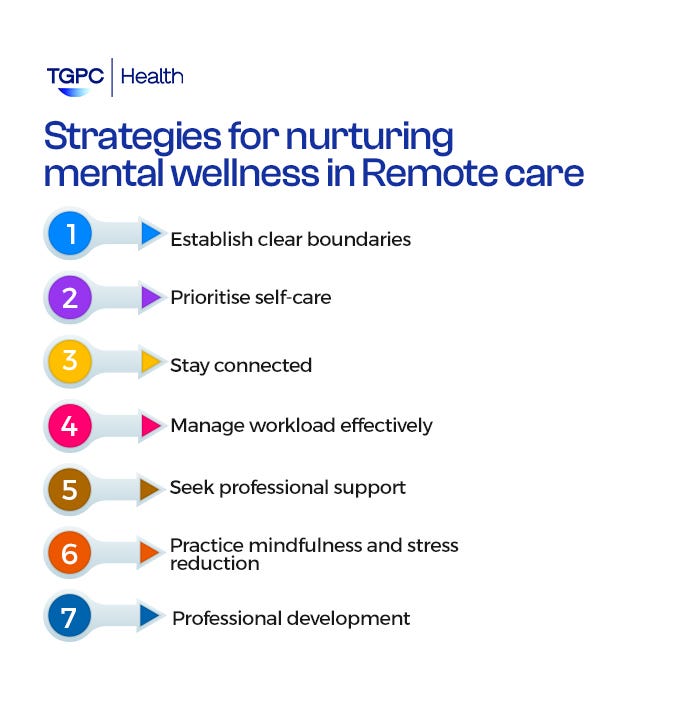Nurturing mental wellness in remote health and social care work

The shift to remote work has significantly changed the health and social care sectors.
While it offers flexibility and accessibility, it also presents unique challenges, particularly in nurturing mental wellness. For professionals dedicated to caring for others, maintaining their mental health is essential for sustaining the high standards of care expected in this field.
To achieve mental wellness, several strategies can be adopted. But before we explore these strategies, let’s establish some background knowledge on the challenges.
Understanding the challenges
Remote work can blur the boundaries between professional and personal life, leading to longer working hours and increased stress. The isolation from colleagues and the emotional demands of health and social care roles can further exacerbate feelings of burnout and anxiety. Recognising these challenges is the first step towards addressing them effectively.
Strategies for Nurturing Mental Wellness
- Establish clear boundaries:
- Set specific working hours and stick to them. Avoid checking emails or taking calls outside of these hours.
- Create a dedicated workspace that separates your professional and personal life.
- Communicate availability to colleagues and clients to manage expectations.
2. Prioritise self-care:
- Incorporate regular breaks into your workday to recharge.
- Engage in activities that promote relaxation and well-being, such as exercise, meditation, or hobbies.
- Ensure you get adequate sleep and maintain a healthy diet.
3. Stay connected:
- Check in regularly with colleagues through virtual meetings or social platforms.
- Participate in professional networks and support groups to share experiences and advice.
- Seek supervision or mentorship to discuss challenges and gain support.
4. Manage workload effectively:
- Use tools and techniques to organise tasks and manage time efficiently.
- Prioritise tasks and delegate when possible to avoid overload.
- Set realistic goals and acknowledge your achievements to maintain motivation.
5. Seek professional support:
- Don’t hesitate to seek help from mental health professionals if needed.
- Take advantage of employee assistance programmes that offer counselling and support services.
- Engage in professional development to build resilience and coping skills.
6. Practice mindfulness and stress reduction:
- Integrate mindfulness practices into your daily routine to enhance focus and reduce stress.
- Use stress management techniques, such as deep breathing exercises or progressive muscle relaxation.
- Ensure your chair supports your lower back and promotes good posture
- Position your monitor at eye level to reduce neck strain.
- Keep frequently used items within easy reach to minimize stretching and twisting.
- Engage in reflective practices to process emotions and experiences.
7. Professional development:
- Engage in continuous professional development to stay updated with the latest practices and technologies in remote care. This can boost confidence and competence, reducing work-related stress.
- Set achievable professional goals to maintain motivation and a sense of purpose.

Maintaining mental wellness will remain a cornerstone of effective and compassionate service delivery. Embrace these strategies to stay resilient, motivated, and capable of delivering the best care possible to those in need.
For more support and tips on nurturing your wellbeing, visit:
